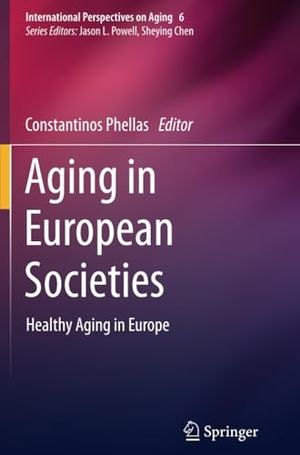Für statistische Zwecke und um bestmögliche Funktionalität zu bieten, speichert diese Website Cookies auf Ihrem Gerät. Das Speichern von Cookies kann in den Browser-Einstellungen deaktiviert werden. Wenn Sie die Website weiter nutzen, stimmen Sie der Verwendung von Cookies zu.
Cookie akzeptieren
Aging in European Societies
- Springer US
- 2014
- Taschenbuch
- 316 Seiten
- ISBN 9781489988041
Between longer life expectancies and declining birth rates, Europe¿s elder population is growing into a sizable minority with considerable impact on nations, health systems, and economies¿in other words, global implications as well as local and regional ones. Those investing in the health of older adults need a double perspective: the social and clinical complexity of aging and the larger forces shaping these experiences. Aging in European Societies examines aging trends across the continent, analyzing individual and collective variables that affect the lives of older adults, and drawing salient comparisons with other parts of the world. An interdisciplinary panel of experts provides theory, research, and empirical findings
Mehr
Weniger
zzgl. Versand
in Kürze